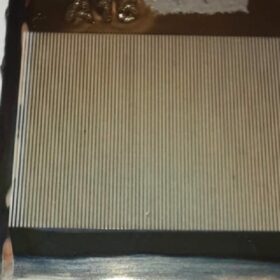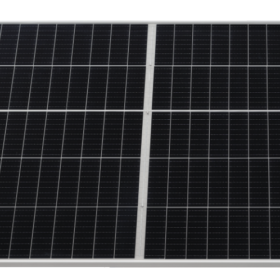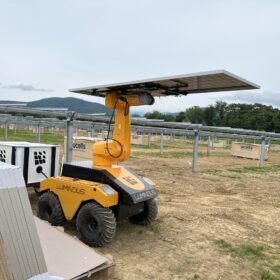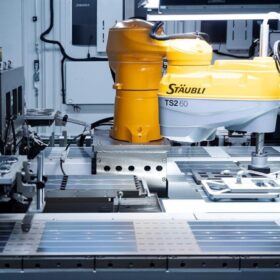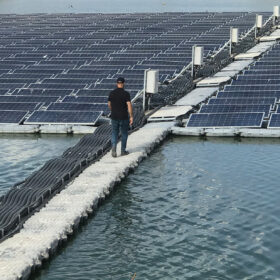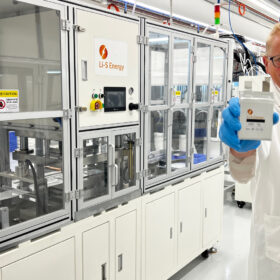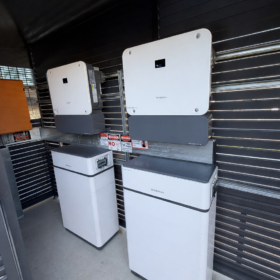GameChange Solar introduces terrain-following tracker
United States-headquartered manufacturer GameChange Solar says its Genius Tracker TF supports slopes of up to 1.7 degrees between posts, thereby reducing land grading costs.
$20 million greenhouse to reap solar innovation for agrivoltaic sector growth
ClearVue Technologies has joined a $20 million research project aimed at transforming agrivoltaics while generating clean energy using the company’s transparent solar glass technology.
Perovskite solar cell efficiency improves with micro-concentrators
In a novel combination of micro-concentrators and picosecond laser processing, Italian researchers are tackling two metal halide perovskite solar PV challenges to reduce the use of lead and extend stability of the power conversion efficiency.
Risen hits 740 W average for mass-produced HJT module
Risen Energy says it has achieved an average power output of 740 W for its mass-produced heterojunction solar module, with certified cell efficiency of 26.61% and module efficiency of 24.81%, according to China’s Fujian Metrology Institute. Encapsulation losses were limited to 1.8%.
Robotics company lands federal funds to scale up solar construction
Robotics company Luminous has secured almost $5 million in federal government funding to support the deployment of a fleet of AI-powered robots designed to accelerate the construction of utility-scale solar farms.
Tongwei achieves 91.7% bifaciality factor for 722 W TOPCon solar module
The Chinese manufacturer said the result was confirmed by TÜV Rheinland. It was achieved through a sunken pyramid structure that reportedly achieves selective-texture on the non-electrode area of rear-side and a zebra-crossing passivation contact structure that is said to ensure excellent passivation.
MoorPower takes next step on commercialisation journey
Australian wave power technology company Carnegie Clean Energy has secured new funding to advance the design of a commercial wave energy generation system for offshore applications, starting with the moored vessels used in the aquaculture sector.
How albedo interacts with rooftop PV system patterns
Researchers have simulated 160 cases of PV rooftop installation in southern and northern Italy. Among changing parameters were size and type of the panels, as well as their roof cover rate. The considered albedos were 20%, 40%, 60%, and 80%, representing different types of roof materials.
Project to test floating PV on farm dams to save water, generate electricity
The feasibility of deploying floating solar systems on farm-based water storages to optimise water retention and generate renewable energy that could serve as an alternative income stream for landholders will be investigated as part of an Australian-first research project.
Australian battery maker targets military-related applications
Queensland battery technology developer Li-S Energy has signed a supply and testing agreement with an unnamed defence technology company, targeting integration of lithium-sulfur battery solutions into advanced military and security systems.

